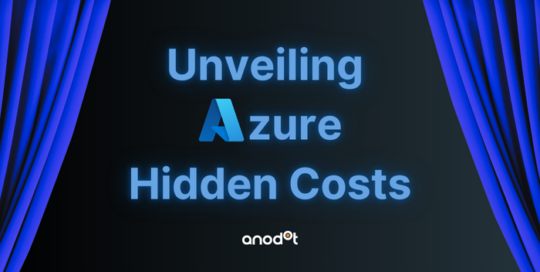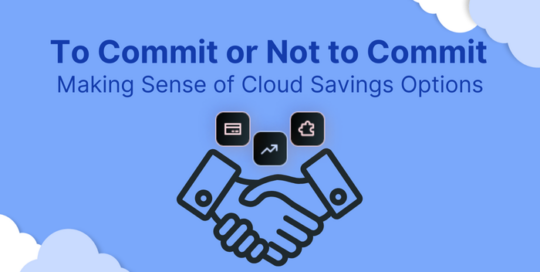Azure Functions is a serverless computer Microsoft Azure service. Its goal is to enable developers to create scalable, cost-optimized, event-driven applications without the hassle of server management.
However, like most Azure cloud-based offerings, the costs of Azure Functions can be muddied by the different pricing models and the factors that can increase (or decrease) your monthly bill. Our guide simplifies things so you can be confident your Azure spend is optimized down to the last dime.
In this article:
- Who benefits from using Azure Functions?
- Azure Functions pricing models
- What factors impact Azure Functions pricing
- How to optimize your Azure Functions price
- Optimizing Azure Functions pricing
Who benefits from using Azure Functions?
Before we get into how to optimize your Azure pricing and spending, let’s break down who should be using Azure Functions, and how you should be benefiting from it.
Azure Functions will appeal to any company working with smaller apps that have events that function independently of other websites.
Since one of the biggest appeals of Azure Functions is the ability to write less code and maintain less infrastructure while saving on costs, this, of course, appeals to most FinOps organizations. You won’t have to worry about small menial tasks like order processing, task scheduling, database cleanup, or even IoT data processing, as Azure Functions can help.
Basically, if you’re a cloud user who needs help with DevOps and wants to save time and money on application and system development, Azure Functions is for you. Your DevOps team will thank you, and your FinOps team will love you because of how Azure Functions will streamline the most menial tasks – and how much money you can save!
Azure Functions pricing models
There are two pricing models for Azure Functions: Consumption and Premium.
Let’s break down these models so you can decide which works best for you and your business:
Consumption
The consumption plan is the most common Azure Function pricing model. A pay-as-you-go model charges users based on function execution time and total number of functions, meaning idle time is free.
Executions cost $0.20 per one million executions. You are charged $0.000016 per GB-s for execution time.
Here’s an example of how much you might spend if you run a function for 1000 milliseconds and use 300 MB of memory: 0.000016 x 300 would be $0.0048 for each execution. If you execute that function two million times each month, the cost would be 2,000,000 x $0.0048 per month, or $9,600.
Premium
Suppose you’re looking for a payment plan that’s better suited toward supporting longer execution time, hybrid connections, virtual network connectivity, generally higher processing power, and better resource reliability and availability. In that case, the Premium plan is for you.
Prices depend on the number of vCPU and memory resources you need. There are four different tiers to pick from:
| Plan | vCPUs | Memory | Price |
| Premium V2 | 4 vCPUs | 14 GiB | $0.532 per hour |
| Premium V3 | 8 vCPUs | 28 GiB | $1.064 per hour |
| Premium V4 | 16 vCPUs | 56 GiB | $2.128 per hour |
| Premium V5 | 32 vCPUs | 112 GiB | $4.256 per hour |
Here’s an example of what this pricing looks like when applied: If you pick the Premium V4 tier and use your function app 24 hours a day for 30 days, you’ll pay 24 x 30 x $2.128, or $1532.16.
Need more info on Azure pricing? Check out our guide to Azure Savings Plan and Azure ML Pricing.
What factors impact Azure Functions pricing
Pricing for Azure Functions isn’t only determined by a choice of consumption or premium. The following are other factors to monitor when calculating budgets.
Region
Azure charges different prices for different regions of the world. East US is broken down into two regions while West US is broken down into three, so expect multiple price variations for your country, with the divide usually taking place on the East/West.
Outside the US, the UK is divided into two pricing regions: the South and the West. Israel is only Israel Central. India is divided into Central, South, and West India.
Outbound data transfer
If you transfer data from your function app to other non-Azure services (APIs, storage accounts, databases), you’ll be charged for the amount of data transferred.
Outbound data transfers are typically charged on a per gigabyte basis, with prices increasing depending on how many zones you must pass through. Prices typically start at $0.035 per GB, and increase as high as $0.16 per GB.
Complexity of function
The more complex the function, the more memory consumption and run time you’ll need. In other words, the more complex the function, the higher the cost.
Frequency of execution
The more your function is triggered, the more executions you’ll need, impacting your cost. When budgeting, remember how often a function will need to be run.
Function length
The time it takes for your function to run will directly impact execution time and memory used. The longer your execution time, the higher the bill.


David Drai
CEO & Co-Founder, Anodot
David is dedicated to helping companies uncover business insights with AI analytics, backed by a strong background in leading tech innovations.
TIPS FROM THE EXPERT
1. Choose the right pricing plan for your workload
Evaluate your function’s workload to select the right pricing model. If your app runs intermittently with unpredictable workloads, the Consumption plan is ideal. However, if you need more consistent performance or advanced features, the Premium plan is worth the investment for better resource reliability.
2. Optimize code to minimize execution time
Streamline your function code to reduce execution time and memory consumption. Optimizing logic, eliminating unnecessary loops, and caching frequently accessed data can help reduce both execution time and the number of executions required.
3. Enable autoscaling for efficient resource allocation
Configure autoscaling to match usage patterns and prevent over-provisioning. This ensures that your function app only uses the resources necessary, scaling up during peak times and down when demand is low, keeping your costs under control.
4. Monitor data egress and minimize outbound transfers
Be mindful of outbound data transfers, which can accumulate costs when data is sent outside of Azure. Where possible, localize resources within Azure to reduce cross-region or external data transfer charges, which can increase based on the amount of data moved.
5. Split complex functions into smaller tasks
Divide complex, long-running functions into smaller, more efficient tasks to avoid hitting memory or execution time limits. This strategy reduces resource consumption per function, lowering overall costs and improving scalability.
How to optimize your Azure Functions price
Azure Functions don’t have to take up a huge section of your budget. You can optimize your spend so you know not even a single dollar has gone to waste.
Optimize code
Since longer execution times and more complex functions lead to more enormous bills, optimize your code so it’s as efficient as possible. This will reduce execution time and the number of executions you need to run, and your finance team will thank you.
Cache
Caching lets you store frequently used data, so you don’t need to execute your function each time you need it.
Pick the best plan
Ensure you’re using the best plan for your Azure Functions’ usage. If you need advanced features like hybrid connections or increased processing power, you’re better off going with Premium. But if you need more time to be ready to commit to regular bills and only use Azure Functions occasionally, stick with the Consumption plan.
Automate scaling
Enabling automated scaling means Azure Functions will up or downscale your function app based on usage patterns. This is a great tactic for ensuring you only use the necessary resources.
Monitor your cloud usage
Big spikes in Azure Functions can be either a nuisance or a budget breaker. Azure Monitor can help track execution time, memory usage, and the number of executions, but it often doesn’t provide enough control to help fully optimize your budget.
That’s where third-party cloud monitoring tools like Anodot come into play.
Optimizing Azure Functions pricing
Good news—there is an easier way to never worry about your Azure prices again: Anodot’s cloud cost management solution. Get 100% end-to-end visibility and a tool that allows you complete control over your budget and helps you uncover any unknown charges. Eliminating wasteful spending while uniting your FinOps, DevOps, and Finance teams.
Other Anodot features include:
- Next-Gen Forecasting: Predictive analysis for accurate future cloud budgets and spend.
- Multicloud Assistance: Comprehensive control and visibility across all of your cloud platforms.
- AI-Powered Recommendations: Actionable AI-powered support for efficient resource utilization and cost reduction.
- Real-time Anomaly Detection: Identify unusual cloud cost spikes for proactive management.
- Personalized Dashboards & Alert: Customizable dashboards and alert system to help monitor your DevOps cost-savings.
Our ML-driven forecasting tool enables you to allocate costs by service, unit, team, app, and more, all while helping you save up to 40% on annual cloud spend. We’ve worked hard to design a tool that lets you focus on what matters, like quarterly goals and annual budget, so you don’t ever have to worry about cloud cost monitoring taking up too much of your teams’ time.
Get proof of concept. Talk to us for more insight into Azure Functions prices and how much you can save with Anodot’s tools.





